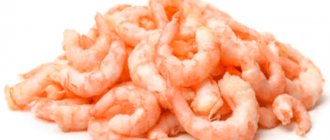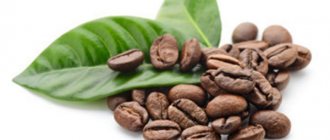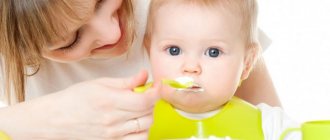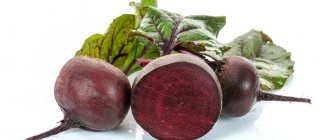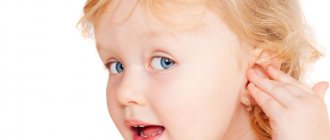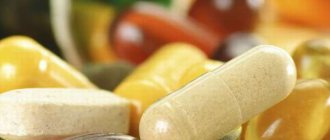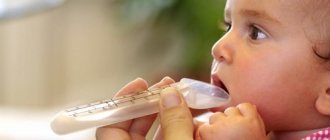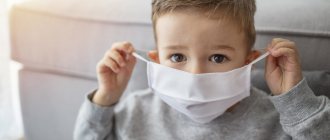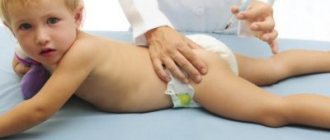Valuable qualities
- Affects the overall development of the body, active growth.
- Valuable for the immune system, as it contains carotene and ascorbic acid. Children who regularly consume honey get sick much less often; their bodies are resistant to viruses. A particularly valuable remedy is the combination of honey with lemon and ginger.
- It has a beneficial effect on the blood and helps increase hemoglobin.
- Relaxes, has a sedative effect, promotes rapid sleep, and normalizes sleep.
- It has a positive effect on the digestive system, improves the process of assimilation of food, digestion, and prevents rotting in the intestines.
- It is used for stomatitis, as it has an antiseptic and analgesic effect.
- Helps reduce fever and is a diaphoretic. Therefore, it can be used for respiratory diseases.
- Affects better absorption of magnesium and calcium. Consequently, it affects the normal condition of teeth and bones.
- It has a beneficial effect on vision and increases its sharpness.
- Promotes better assimilation of material, improves memory and concentration.
- If you replace sugar with honey, then such a product will have much less harm on your teeth and will reduce the percentage chance of developing caries.
- It is believed that with regular consumption of honey, you can get rid of enuresis if you have a history of it.
Possible harm
Caries is a possible problem with frequent consumption of honey.
If the introduction to honey is too early or the baby tastes a low-quality product, then the following consequences cannot be ruled out:
- botulism;
- manifestations of an allergic reaction;
- Quincke's edema;
- Excessive consumption of the product can lead to tooth decay and obesity.
About the benefits of honey for children
Many parents do not even suspect that the answer to the question of whether honey can be given to children may be negative. After all, in childhood they themselves were given it as almost a universal medicine. There is a rational grain in this. The beneficial properties of honey for children are known and proven.
- The product promotes the full development of the child.
- It is a catalyst for the absorption of calcium and magnesium by the child’s body, and without these substances the full development of the skeleton is impossible.
- The product is prescribed to children with low blood hemoglobin.
- It improves intestinal motility, promotes food digestion and timely bowel movement.
- It contains carotene and vitamin C. It is these substances contained in honey that have a detrimental effect on viruses. Children who consume honey regularly have strong immunity.
- Carotene is an element that helps improve visual acuity. The earlier the baby begins to consume foods with carotene, the fewer vision problems there will be in older age.
- Since this product does not contain sugar, it does not contribute to tooth decay. However, fructose in honey can cause disruption of the microflora of the mucous membrane and cause the appearance of ulcers and stomatitis. Therefore, after eating this delicacy you need to rinse your mouth.
- The product is used in the complex treatment of childhood enuresis.
- It is also a natural sedative, which makes the baby quickly fall asleep.
- The product also has expectorant properties, so it is actively taken for upper respiratory tract diseases.
As you can see, the list of beneficial properties of this product is quite extensive, and few people question whether honey can be given to children. However, there are also contraindications. Some substances contained in the product are strictly prohibited for young children, as they may adversely affect their development. Therefore, the question needs to be posed differently than at the beginning: at what age can children be given honey so that there are no undesirable consequences.
Optimal age
Parents often ask when exactly to start introducing their baby to honey. Previously, when it was not known about the possible harm of this product, people without hesitation gave honey to children at any age, in particular when treating colds. Modern experts recommend not to rush to introduce the baby to this product; up to a year it is considered contraindicated; from one to three years it can be administered with caution; only after three years should one be more relaxed.
When solving the issue of honey, it is also necessary to take into account that at different age periods different volumes of the product consumed are acceptable:
- honey for children under one year of age is prohibited for consumption;
- from one year to three years - no more than 5 grams per day maximum three times a week is permissible;
- from three years to five years – 16 grams per day;
- from 6 to ten years - up to 45 grams;
- for children over 10 years old - maximum 75 grams.
Parents should understand that even without a predisposition to allergies, if this product is abused, it can develop.
Why is honey dangerous for children?
If you give honey to your child too early, or give a low-quality product, and do not follow contraindications, the following complications may occur:
- Manifestations of allergies from rash to Quincke's edema;
- Botulism is a disease that affects the nervous system and respiratory system;
- If there is an individual intolerance to honey, the child may experience some allergy symptoms: hives, runny nose and others;
- Excessive consumption of the product leads to the development of caries and weight gain.
To the question of whether children can have honey, parents still do not have a clear answer. As a rule, those who have experienced the hardships of complications will never give this product to their child again; others are confident that only with its help the child’s cold will go away quickly and without consequences. In any case, it is better to avoid drinking honey at an early age. And after 2 years, honey should be introduced into the baby’s menu with caution.
We also recommend reading: Is it possible to give eggs to a child? Read all the most useful things on our website: Is it possible for a child?
Contraindications
Honey is contraindicated in obesity
Despite its benefits, honey may not be suitable for everyone. It is therefore unacceptable to use this product if:
- persistent allergy to the product or its components;
- idiosyncrasy;
- presence of diabetes mellitus;
- the baby suffers from scrofula;
- obesity or a genetic predisposition to it.
Is it possible to give honey to an infant?
Doctors are unanimous: children under one year of age should not be given honey!
Contraindications are based on the high risk of allergies and botulism infection. In addition, honey contains fructose, and therefore, when consuming a sweet product, infants may be predisposed to diabetes.
Mothers who are breastfeeding should also limit their intake of sweets, because the baby reacts to all the components that enter its body with mother's milk.
Features of choice
- You need to make sure of the quality. Today, honey bought in a store may contain flavoring additives, dyes, can be diluted with the addition of sugar, and there are known cases of paraffin detection. Such a product can be quite dangerous for a small child. However, you need to understand that for a toddler, a natural product can be no less harmful than a surrogate one. It is worth considering that you do not know where exactly the apiary is located, because it may even be next to a busy highway.
- No allergic reaction to honey. According to recent data, the number of allergy sufferers is constantly increasing, particularly among children. Environmental problems and a large percentage of chemical components in products are largely to blame. Honey is a strong allergen. This must be taken into account, as serious consequences cannot be ruled out.
- Get advice from your pediatrician and allergist if you have had a previous allergic reaction. Only after this start getting to know each other.
Consider all the positive aspects, as well as the disadvantages of this product, find out at what age you can give it to your baby, take into account any history of allergic reactions in response to other products.
How to give
When the baby first gets acquainted with this product, it is necessary to take into account the following sequence of actions:
- you need to take a drop of liquid honey;
- apply it to the toddler’s wrist;
- wait two minutes;
- rinse with water.
If, immediately or within three hours after contact, neither redness nor any other signs characteristic of an allergic reaction appear in this area, then you can try to include honey in the children's diet. The first acquaintance should include a small drop of honey diluted with water. You can gradually increase the percentage of honey, and then start giving it in its pure form, if there are no negative reactions to it.
Parents should be aware that children under ten years of age should consume only liquid product. Candied is not recommended for children under 10 years of age.
I’m thinking about what kind of honey to give to children; it is necessary to take into account certain selection criteria.
- Children do not particularly like buckwheat honey, which is brown in color, due to the presence of a bitter taste. At the same time, it is generally accepted that such a product fights anemia and colds as well as possible.
- Many children like the acacia variety, because it smells nice and is quite tasty. This product is considered not as allergenic as other varieties. It has a sedative effect and is a good expectorant.
- Linden honey is also liked by many kids. It has bactericidal properties that help fight colds.
Adviсe
- Observing age-specific dosages, make sure that honey is kept in the toddler’s diet for no longer than one month without interruption. It will be possible to resume it in the child’s diet two to three months after stopping use.
- There is no need to start getting acquainted with honey with a pure product. It is important to dilute it with water. Can also be added to tea or milk.
- It should be borne in mind that honey can replace sugar, so it can be added to porridge or cottage cheese.
- You cannot force your baby to taste honey. If he resists this product, there is no need to force him.
- Postpone your introduction to honey until a later date. Don’t rush to introduce it into your toddler’s diet.
Parents should know that they need to dilute honey with a liquid whose temperature does not exceed 45 degrees. This is the only way to preserve its valuable qualities. Otherwise, he will not only lose them, but also acquire harmful substances.
Now you know at what age a child can take honey. You know what valuable qualities this product has. Do not forget about a possible allergic reaction to honey, the individual characteristics of each child. Remember that there are also contraindications to the use of honey.
